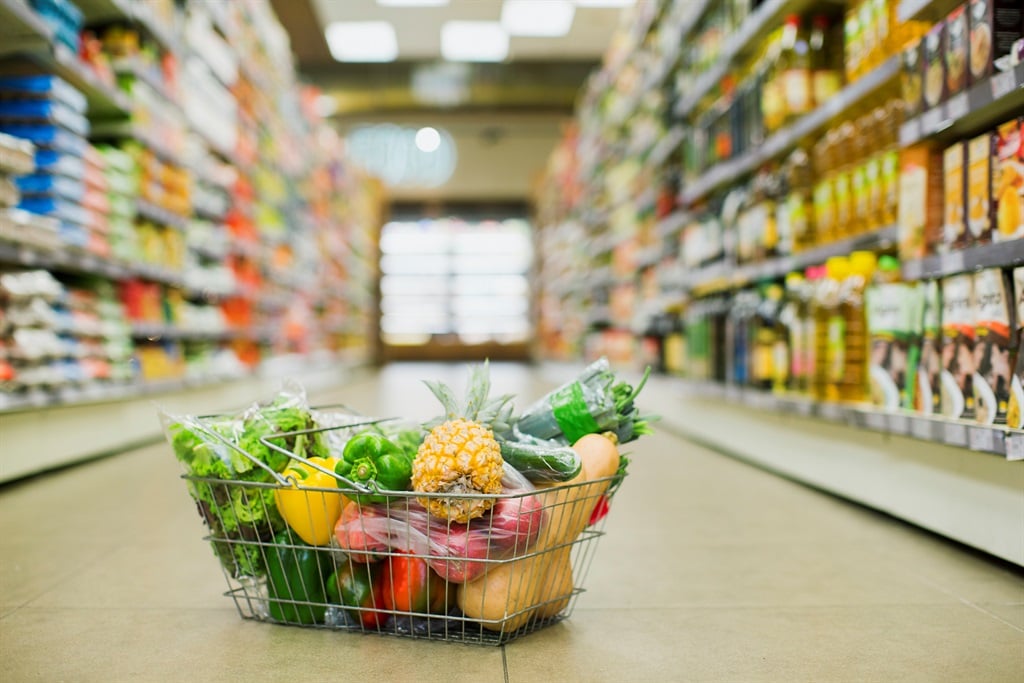
- In its latest report about food price, SA's competition watchdog notes that local retailers are still earning higher profit margins than in the UK and Ireland.
- But margins have declined this year due to load shedding costs, it acknowledged.
- Still, compared to the slice that producers are getting, retailers' share of retail prices are now at historic highs.
- For more financial news, go to the News24 Business front page.
SA's competition watchdog still believes food is pricier than it should be – due in part to large profit margins among retailers and producers, along with a lack of competition. However, there is also some recognition that the cost of load shedding is keeping prices high, even as global food costs fall.
In the Competition Commission's latest report on essential food prices, it finds that the price of bread, maize meal and cooking oil are not cooling as fast as the sharp decline in global commodity prices.
For example, global bread and wheat prices had fallen by about 10% during the first quarter of the year, South African producer and retailer prices for bread had risen 3% during the same period.
The report found that producer prices have been falling for much of 2023. But these lower producer prices have not fully translated into lower prices in shops. This indicates that retailers are not passing through all cost reductions:
In an analysis of meat prices, for example, it found that weaner calf prices had fallen substantially this year, which had also led to lower prices for beef carcasses as well. However, the commission noted, the retail price for beef cuts had not declined this year. Retailers now earn 40% of the shelf price of beef, the highest share since January 2021.
The commission points out that local retailers' profit margins remain higher than in countries like the UK and Ireland.
"We notice that local retailers are much more profitable than their counterparts in these countries," the commission says in its report. "This could be due to various factors, including differences in the level of competition. Additionally, in some markets like the UK, retailer margins are decreasing as discounters gain prominence, while in South Africa, margins increased between 2019 and 2022 before a recent decline primarily attributed to load shedding costs."
Shoprite alone spent more than R1.3 billion on load shedding expenses in a year.
The weighted profit margin for South African retailers went from 5.6% in 2020 to 6.0% in 2022. It has fallen to 5.3% in 2023.
Shoprite’s profit margin grew from 2019 to 2022, but has returned to where it was in 2019. Woolworths has fallen consistently since 2020, the commission notes. Pick n Pay’s profit margin has remained stable since 2021.
But its analysis also shows that profit margins earned by bread and maize meal producers continue to grow in 2023.
The report notes that South African producers and retailers were facing other cost pressures, including load shedding, which may explain why there had been a major lag between global prices coming down and consumers seeing the benefit on supermarket shelves.
For Sasfin Wealth senior equity analyst Alec Abraham, there two main issues behind why food price inflation was "sticky" and not easing as quickly as global commodities, namely the major costs that retailers and producers were having to outlay on diesel, backup power batteries and solar, as well as the lag effect created by when producers secured some of the inputs for their products.
The investment in backup generation had to be "returned somehow" which was an important factor "behind why you may find prices a little stickier" as retailers and producers had to make good on the costs incurred because of load shedding, be it diesel, or the installation of solar or batteries.
There was also a lag between the pricing that producers pay and what is seen on the shelf, said Abraham.
"Typically, producers have to secure pricing for grain and other products in advance and make sure they can secure sufficient supply and get a decent price. So there might be a bit of a lag. While the spot prices may be coming down, they (producers) might have bought their maize six months ago when it was right up there and so there is a bit of a lag between when the spot price and what the producers may or may not have paid."
Abraham said another reason why food inflation was stickier was the high fuel price, exacerbated by the stubbornly weak rand because of SA's poor and deteriorating fundamental and government finances.
FNB portfolio manager Wayne McCurrie also noted that retailers and producers were taking on more and more costs because of load shedding and some of the input costs they had incurred purchasing goods in advance.
McCurrie pointed out that food producers such as Libstar, which released results on Tuesday that showed interim profits falling by half and volumes moving backwards, were battling to "get price increases through to customers to cover their rising costs".
He says "as long as there is no collusion when it comes to the production of food", the market can rely on a capitalist system to price the product correctly.




 Publications
Publications
 Partners
Partners













